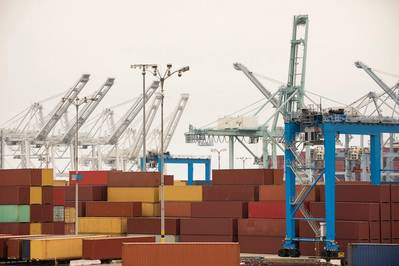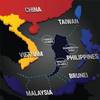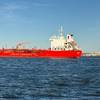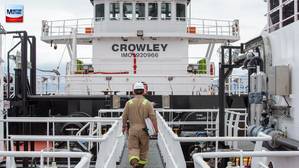US Works with Firms in Supply Chains to Ease Port Congestion
The U.S. Transportation Department (USDOT) said on Wednesday a supply chain pilot data-sharing project aimed at easing bottlenecks at congested U.S. ports has begun exchanging data and doubled in size.
USDOT announced the planned project in March with truckers, shippers, wholesalers, retailers and ports "to develop a digital tool that gives companies information on the condition of a node or region in the supply chain."
The effort known as the Freight Logistics Optimization Works (FLOW) program included 18 initial participants including FedEx, UPS, C.H Robinson, Albertsons, Target as well as the Ports of Long Beach and Los Angeles and ocean carriers CMA CGM and MSC and Fenix Marine Terminal and Global Container Terminals.
U.S. Transportation Secretary Pete Buttigieg called the program a "first-of-its-kind initiative to share information and help move goods more quickly and cheaply."
The White House said in March the goal was to create a "proof of-of-concept freight information exchange by the end of the summer."
The department is holding a meeting on Wednesday to discuss initial secure data sharing with USDOT of the group that has now expanded to 36 participants including logistics giant DHL, part of Deutsche Post DHL Group, long-haul trucker J.B. Hunt, Maersk, Samsung, Procter & Gamble PG.N and Prologis to USDOT said it is serving as "an independent steward of supply chain data across a largely privately-operated enterprise that spans shipping lines, ports, terminal operators, truckers, railroads, warehouses, and beneficial cargo owners."
Samsung Electronics North America CEO KS Choi said "data sharing enabling timely cargo delivery is a work in progress but remains incomplete. Fixing this problem will require cooperation with many stakeholders across the supply chain."
On Monday, the National Retail Federation (NRF) said imports at major U.S. container ports are expected to slow significantly for the remainder of the year but 2022 should still see a net gain over 2021.
"Lower volumes may help ease congestion at some ports, but others are still seeing backups and global supply chain challenges are far from over," the NRF said.
(Reuters - Reporting by David Shepardson; Editing by Robert Birsel)















